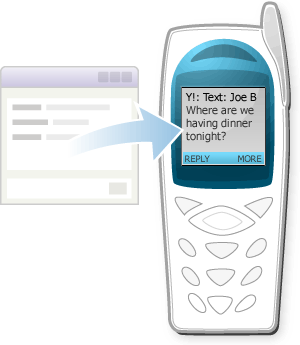Greeting is an act of communication in which human beings (as well as other animals) intentionally make their presence known to each other, to show attention to, and to suggest a type of relationship or social status between individuals or groups of people coming in contact with each other. While greeting customs are highly culture-
and situation-specific and may change within a culture depending on
social status and relationship, they exist in all known human cultures.
Greetings can be expressed both audibly and physically, and often
involve a combination of the two. This topic excludes military and
ceremonial salutes but includes rituals other than gestures.
1. Greeting statements:
a. Hi : Hai
b. Hello : Halo
c. Peace be upon you : Assalamualaikum
d. Good morning : Selamat pagi
e. Good day : Selamat siang
f. Good afternoon : Selamat siang/sore
g. Good evening : Selamat malam
h. Good night : Selamat malam (perpisahan)/selamat tidur
i. I am glad to see you/glad to see you : Senang berjumpa denganmu
j. I am happy to see you : Saya senang bertemu denganmu
k. I am delighted to see you : Saya senang bertemu denganmu
l. Nice to meet you : senang berkenalan denganmu
m. It is nice to meet you : Gembira rasanya bertemu denganmu
n. It is nice to see you : Gembira rasanya mengenalmu
o. Nice to know you : Senang rasanya mengenalmu
2. Parting Statements
a. Good bye : Selamat tinggal
b. Bye-bye : da dah
c. Cheerio : sampai jumpa lagi
d. Good night : selamat tinggal (malam hari)
e. So long : sampai jumpa
f. See you : sampai jumpa
g. See you later : sampai jumpa nanti
h. See you next time : Sampai ketemu lain kali
i. See you again : Sampai ketemu lagi
j. See you tomorrow : Sampai jumpa besok
k. See you to night : Sampai jumpa nanti malam
l. See you on Sunday : Sampai ketemu hari minggu
m. Good luck : Semoga berhasil
n. Wish you luck : Semoga beruntung
o. All the best : Segala yang terbaik untukmu
p. God bless you : Tuhan memberkatimu
- Example
Conversation I
Mr. Jimmy : “Hi, Tom”
“Hai, Tom.”
Tommy : “Hello, Mr. Jimmy. How are you today?”
“Hallo, Pak Jimmy. Bagaimana kabar anda hari ini?
Mr. Jimmy : “I’m fine, thanks. And you?
“Saya sehat-sehat saja, terimakasih. Dan kamu?
Tommy : “Pretty God, thank you.
“Baik-baik saja terimakasih.
Mr. Jimmy : “Where do you want to go?
“Kemana kamu mau pergi?
Tommy : “I want to buy a kilogram of sugar in the store.
“Saya mau beli gula satu kilo di warung.”
Mr. Jimmy : “Oh really?, See you Tom.
“Oh begitu ya? Sampai ketemu lagi Tom.
Tommy : “Good bye Mr. Jimmy.”
“Selamat tinggal Pak Jimmy.”
Conversation II
Robbie : “Hi, Good morning Susan?”
“Hai, Selamat pagi Susan?”
Susan : “Good morning Rob, What is it?
“Pagi Rob, Ada apa ya?
Robbie : “Would you like to go with me to the cinema tonight?
“Kamu mau nggak pergi ke bioskop sama aku malam ini?”
Susan : “Sure”
“Tentu saja.”
Robbie : “Nice to hear that, I will pick you up at 7.”
“Duuh senang nya, aku akan jemput kamu jam 7.”
Susan : “If that so, see you tonight Rob.”
“Kalau begitu, sampai ketemu nanti malam Rob.”
Robbie : “See you”
“Da daah..”








